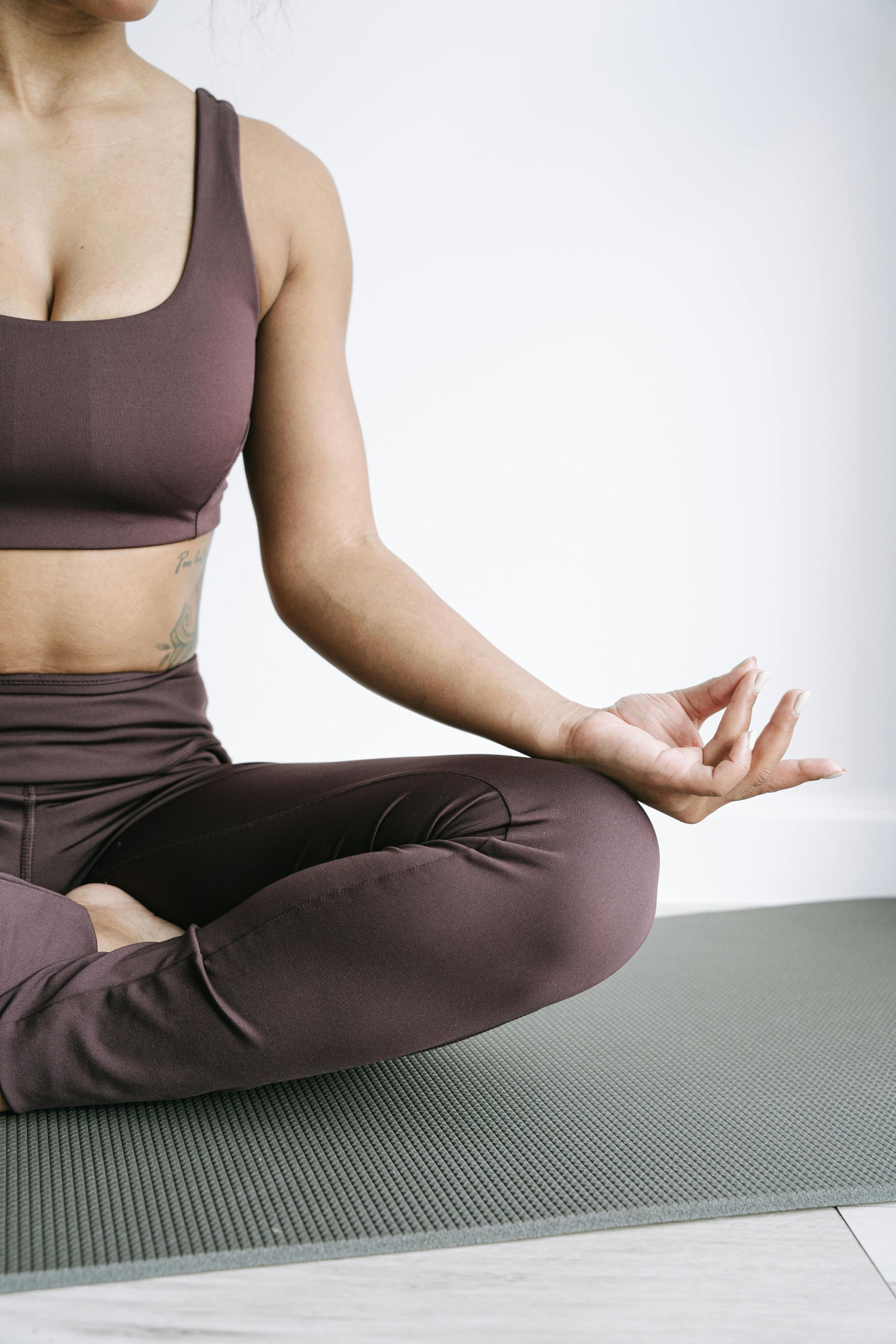Meditation and Breath-work: Science-Backed Tools for Menopause and Longevity

We often associate meditation and breath-work with stress relief, but their power runs much deeper. As a physician specializing in integrative and obesity medicine, I want to share what research tells us: these ancient practices are now modern, science-backed tools that support both hormonal balance during menopause and longevity at the cellular level.
The Menopause Connection: How Meditation Calms the Storm
Menopause is a natural transition, but it can bring along hot flashes, sleep disturbances, mood swings, brain fog, and anxiety. While hormone replacement therapy and lifestyle changes are often recommended, mind-body interventions like meditation and breath-work have emerged as effective, evidence-based strategies.
A landmark 2019 meta-analysis published in JAMA Internal Medicine showed that mindfulness-based stress reduction (MBSR) significantly improved psychological symptoms in perimenopausal and postmenopausal women, including depression, irritability, and anxiety.
Additionally, a 2022 study in Menopause (The Journal of The North American Menopause Society) found that women who practiced mindful breathing and guided meditation for just 20 minutes daily experienced:
- Fewer hot flashes
- Improved sleep
- Decreased perceived stress
- Better quality of life
This is because meditation helps regulate the hypothalamic-pituitary-adrenal (HPA) axis, which controls our stress response. During menopause, this axis becomes more sensitive. Meditation works to calm it down, reducing cortisol and stabilizing mood and energy levels.
Breath-work: Fast-Acting Relief You Can Feel
Breath-work—conscious, controlled breathing techniques—is another powerful, underutilized tool. Studies show that slow, diaphragmatic breathing stimulates the vagus nerve, activating the parasympathetic nervous system (your “rest and digest” mode).
In fact, a 2020 study in Psychoneuroendocrinology found that just 5 minutes of paced breathing at six breaths per minute lowered blood pressure, heart rate, and stress hormone levels—even in women experiencing menopausal symptoms.
Breath-work may also reduce the intensity and frequency of hot flashes by calming the autonomic nervous system and reducing sympathetic overactivity (the “fight or flight” response).
Longevity Benefits: Meditation at the Cellular Level
Beyond symptom relief, meditation and breath-work have been shown to support cellular health and longevity. One of the most exciting findings? Meditation protects telomeres—the caps at the end of your DNA that shorten with age. A study published in Psychoneuroendocrinology showed that women who practiced meditation regularly had significantly longer telomeres, indicating slower biological aging.
Other longevity-supporting effects include:
- Reduced systemic inflammation (measured via lower CRP and IL-6 levels)
- Improved insulin sensitivity and metabolic function
- Lower blood pressure and cardiovascular risk
- Enhanced brain plasticity and reduced risk of neurodegenerative disease
In short, consistent meditation and breath-work help you feel better today and invest in your health tomorrow.
How to Get Started (Science-Approved Basics)
You don’t need hours of silence or an ashram retreat. These are clinically effective, physician-approved starting points:
- Meditation: 10–15 minutes per day of mindfulness meditation, body scan, or guided imagery
- Breath-work: Try box breathing (4-4-4-4) or coherent breathing (6 breaths/minute) for 5–10 minutes
- Consistency matters more than intensity. Aim for at least 5 days a week. Daily is better
Need a starting point? I often recommend free apps like Insight Timer or Calm—or just set a timer, sit quietly, and focus on your breath. Your mind will wander. That’s normal. The magic is in bringing it back. Follow us on social media as I will be posting my favorite body scan meditation and breath-work technique.
The Bottom Line: Breath, Mind, and Medicine
Meditation and breath-work are not “woo” or wellness trends. They are scientifically supported interventions that regulate stress, reduce menopausal symptoms, and promote long-term health at the cellular level. They are low-cost, low-risk, and high-benefit additions to any menopause or longevity-focused wellness plan.
At Designed4Wellness, we incorporate these practices into our programs because real wellness honors both the mind and the body. Want support creating a holistic plan for menopause or healthy aging? Complete the Become A Member form. We will email you more information on how to join our longevity medical practice. You can also explore our 10 + 20 Program which is a physician-guided lifestyle transformation that integrates nutrition, movement, and mindfulness.
📩 Share this post with a friend navigating menopause. Let’s age wisely….TOGETHER.



